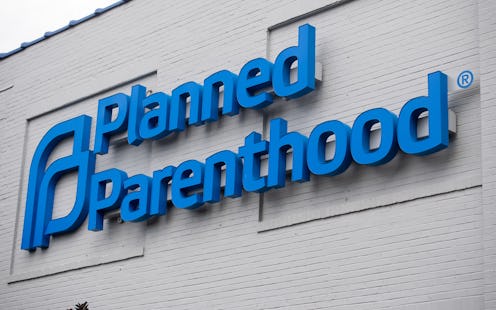Life
What Planned Parenthood Is Doing To Prep For Coronavirus

As the novel coronavirus continues to spread rapidly, health centers worldwide are racing to prepare. That includes Planned Parenthood. Though the organization is primarily known for providing sexual and reproductive health services, it's also many people's main point of contact with the health care system. That’s especially true for those with lower incomes: 79% of the nearly 3 million Americans served by Planned Parenthood every year are at or below 150% of the federal poverty level.
While there isn’t much information yet about how COVID-19 may affect sexual or reproductive health, Planned Parenthood is taking steps to ensure they will be able to continue serving Americans who need access to health care.
“Planned Parenthood health centers are working diligently to ensure that patients continue to get the care they need — while taking all necessary precautions to keep patients and staff protected,” Dr. Krishna Upadhya, M.D., M.P.H., Senior Medical Advisor at Planned Parenthood Federation of America, tells Bustle.
For people who are showing symptoms of COVID-19 — fever, cough, or shortness of breath — and who usually go to Planned Parenthood for primary care, Upadhya asks that they contact their local health department first and follow the steps they recommend. That’s partly because while some Planned Parenthood clinics do have tests for coronavirus, not all do. Your health department can help ensure you get the care you need without risking the health of others.
Upadhya also says that Planned Parenthood clinics nationwide — like other American health care clinics — are struggling with access to standard medical supplies (like masks for providers and some medications), likely due to increased demand worldwide and Chinese factories that make pharmaceuticals closing. Additionally, a report from the Guttmacher Institute, a sexual health and reproductive rights research organization, says that there are already disruptions in the supply chain for medicines like HIV/AIDs drugs, birth control, and antibiotics to help treat STIs; these disruptions mean that people who need these medications might not be able to access them as the crisis continues.
Recent cuts in funding to reproductive and sexual health clinics — including the Title X gag rule, which led to 1,000 clinics no longer receiving federal funding — mean many clinics which are already making ends meet with a lower budget may be particularly hard-hit by the pandemic.
“For the past few years, this administration has pulled every lever within its control to undermine and weaken our nation’s health insurance infrastructure, specifically targeting people who already face systematic barriers to care, including immigrants, people of color, young people, those with low incomes, and LGBTQ+ people,” Zara Ahmed, the Guttmacher Institute's Senior Policy Manager, tells Bustle. “Now, the cumulative effect of years of attacks will heighten the challenges of combatting an epidemic for communities that are already marginalized.”
With so many unknowns about this new virus, the recommendations for how and when to seek care — whether for COVID-19 or for everyday sexual and reproductive services — are changing every day. If you’re wondering whether you should go into your local Planned Parenthood or sexual health clinic, the best thing you can do is call first. The professionals at your clinic will give you the most up-to-date information and help you as best they can.
If you think you’re showing symptoms of coronavirus, which include fever, shortness of breath, and coughing, call NHS 111 in the UK or visit the CDC website in the U.S. for up-to-date information and resources. You can find all Bustle’s coverage of coronavirus here, and UK-specific updates on coronavirus here.
This article was originally published on